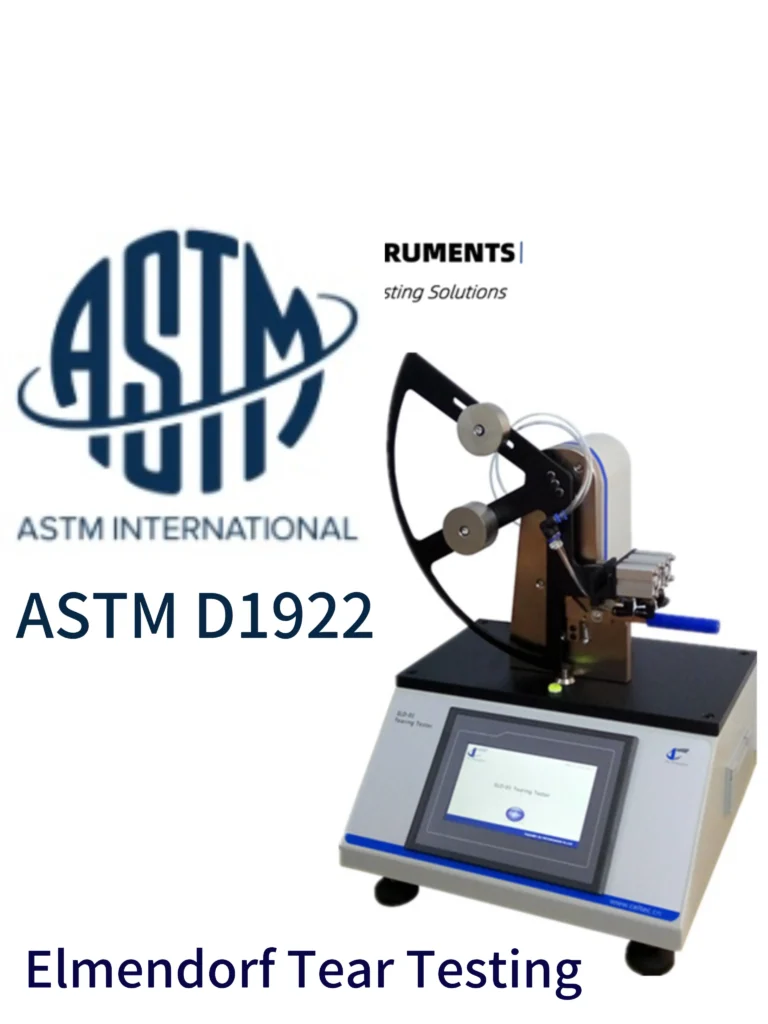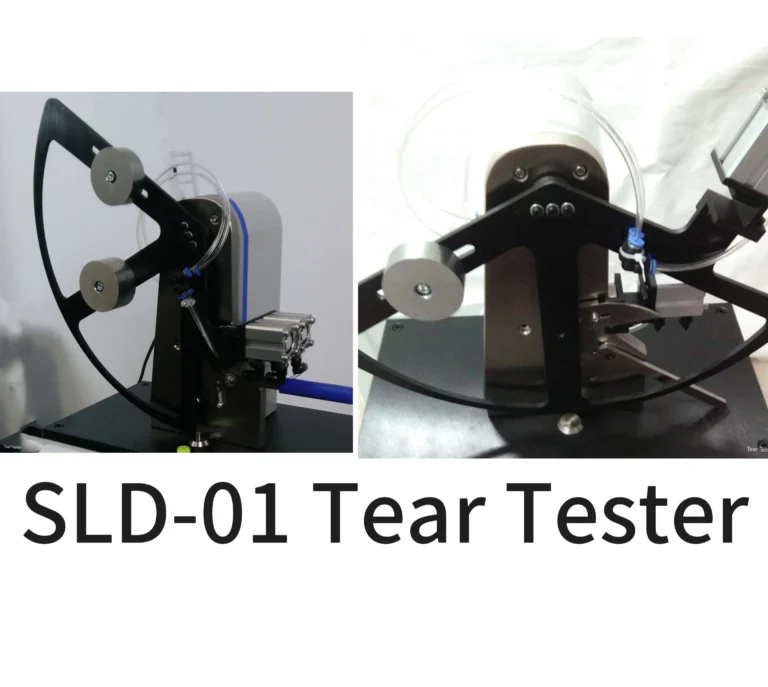
ASTM D1922
Elmendorf Tear Testing
ASTM D1922 is the globally recognized standard for determining the tear strength of plastic film and thin sheeting. This method—commonly known as the Elmendorf tear test—quantifies a film’s ability to resist the propagation of an existing tear. In industries such as packaging, paper, textiles, and flexible electronics, understanding tear resistance is essential for selecting and validating materials under real-world stress conditions.
Using a pendulum-based tearing tester, ASTM D1922 simulates mechanical forces that films may experience during processing, handling, or end-use. It’s especially vital for identifying failure risks in thin plastic films, paper sheets, and textiles, where mechanical integrity is critical.
The Importance
Tear strength is not simply about initial breakage—it reflects a material’s ability to withstand the extension of an existing slit. This insight is crucial for predicting how a film behaves when punctured or damaged. ASTM standard specifically defines the method to test the propagation tear resistance using a pendulum shock test, making it one of the most relied-upon methods in quality assurance and R&D labs.
Tearing strength is influenced by factors such as material orientation, thickness, polymer structure, and environmental conditioning. Therefore, a standardized approach like ASTM D1922 ensures repeatable and comparable data across laboratories and production lots.
Applications Across Industries
This tear resistance test is widely applied in:
-
Flexible Packaging: PE, PP, PET films for food and medical packaging.
-
Paper & Board: Coated papers and carton boards for labels and retail packs.
-
Textiles & Nonwovens: Geotextiles, disposable fabrics, and protective garments.
-
Electronics: Thin plastic insulators and membranes.
Testing with the Elmendorf tester helps prevent failures in field applications, reduce material waste, and optimize material selection for durability.
Test Principle and Procedure
The ASTM method uses a pendulum impact resistance test to measure the energy required to propagate a tear over a fixed distance. Here’s a simplified breakdown:
-
Specimen Preparation
-
Film specimens (typically ≤ 0.25 mm thick) are cut into specific dimensions.
-
A 20 mm precut slit is introduced to simulate an existing tear.
-
-
Pendulum Release
-
The pendulum swings through a set arc to tear the specimen.
-
The loss of potential energy (height drop) is measured to calculate the force.
-
-
Data Calculation
-
Tear strength is calculated in millinewtons (mN) or grams-force (gf).
-
Orientation (machine vs. transverse direction) is recorded to detect anisotropy.
-
-
Reproducibility & Repeatability
-
At least 10 specimens per direction are tested.
-
Standard deviation and average tear strength are reported, ensuring compliance with quality benchmarks.
-
Advantages
The Elmendorf tear tester stands out for its practical advantages in routine quality control and R&D environments. Among its key strengths:
-
Fast Results: The test process takes only a few seconds, making it well-suited for busy labs that handle a high volume of samples.
-
Consistent Performance: By using a fixed pendulum force, it delivers repeatable results that are easy to compare across batches or even different testing locations.
-
Clear Data: The test outputs provide straightforward, numerical values that help users assess and compare the toughness of materials under standardized conditions.
Cell Instruments SLD-01
For labs and production lines seeking reliable tear resistance testing, the SLD-01 Elmendorf Tear Tester by Cell Instruments is an ideal solution. Designed in full compliance with ASTM D1922 and ISO 6383-2, it supports automated pendulum release, touchscreen interface, and data auto-statistics.

Key features include:
-
Pneumatic specimen clamping for repeatable positioning
-
Multiple pendulum capacities (including mN and gf options)
-
Built-in micro-printer and optional RS-232 for digital traceability
-
Highly precise calibration weight system for ongoing accuracy
Conclusion
Understanding tear strength is critical for materials used in packaging, textiles, paper, and flexible plastics. By following ASTM D1922 and using a trusted Elmendorf tear tester, engineers and quality control teams can gain confidence in their product’s durability and performance.
Cell Instruments’ SLD-01 Tear Tester is a professional-grade solution, delivering precise results, regulatory alignment, and intuitive operation—helping industries around the world enhance quality, reduce failures, and optimize materials with confidence.
